Just like superheroes, there are some planting flowers that have some pretty amazing superpowers. Learn about companion planting with 5 of the best flowers that keep bugs away from your garden.
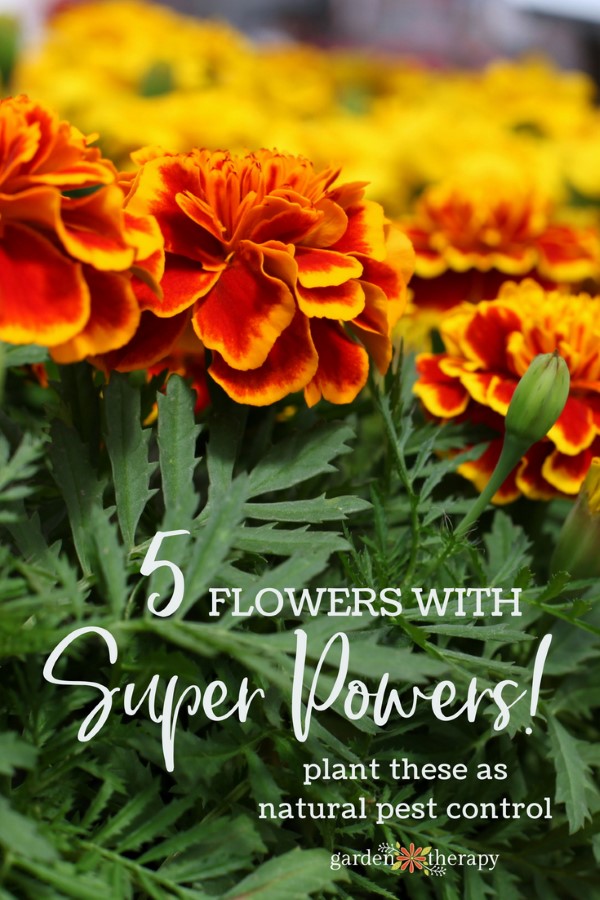
Did you know that flowers have superpowers? Some stop nematodes in their tracks. Others attract aphids away from your veggies. And, some are just so darn powerful that they will repel every tick, cockroach, and bedbug in sight!
Pretty and powerful? Now that’s the kind of organic gardening I can get behind. These 5 super flowers repel bugs in the garden and add their own special brand of style too.
What is Companion Planting?
First, let’s talk about companion planting. Companion planting is taking advantage of the strengths of some flowers by planting them near certain veggies. Some flowers have benefits for your garden that go beyond a pretty face. Those benefits include:
- Aiding in pollination
- Providing habitat for beneficial insects
- Pest control
- Increasing productivity of crops
Adding flowers to the veggie patch is both pretty and practical. You can add these five super flowers to the vegetable garden to send pests running.
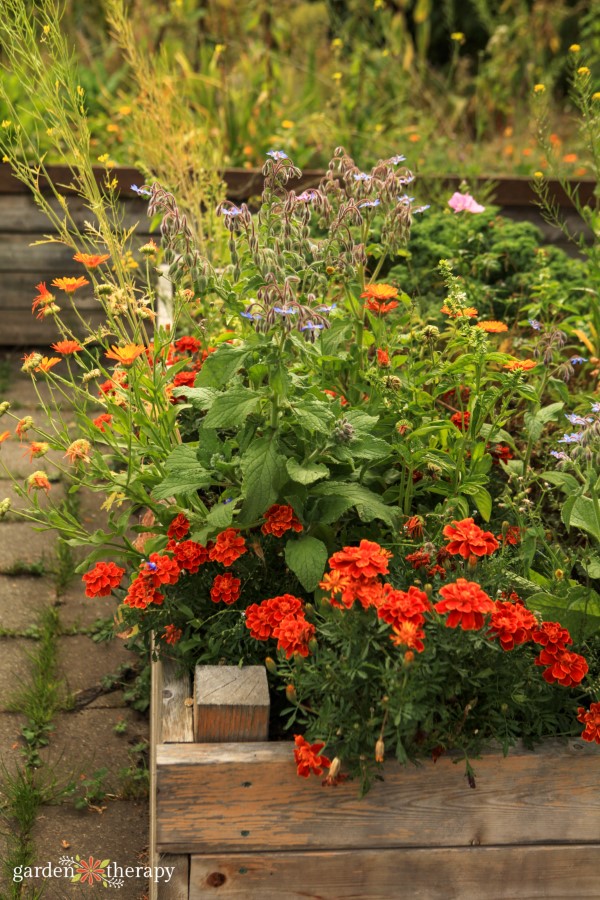
Top 5 Flowers To Use For Companion Planting
These hard workers will add beauty to your garden while doing some very important jobs. Learn about my favourite flowers for companion planting.
Borage
Plant borage near your tomatoes to deter tomato hornworms. In addition to preventing those pesky little fellows, borage makes a lovely ornamental with its delicate star-shaped light blue and pink flowers.
Bonus: Borage is edible! The flowers taste like a mild, sweet cucumber and are a good addition to summer salads along with those pest-free tomatoes growing beside them.
Light Needs: Full sun to partial shade
Water Needs: Moist, well-draining soil
Start From Seed: Sow directly into the ground after the threat of frost has passed
Companion Benefits: Deters tomato hornworms and cabbage worms; attracts bees
Companion Planting: Plant near tomatoes, squash, and strawberries
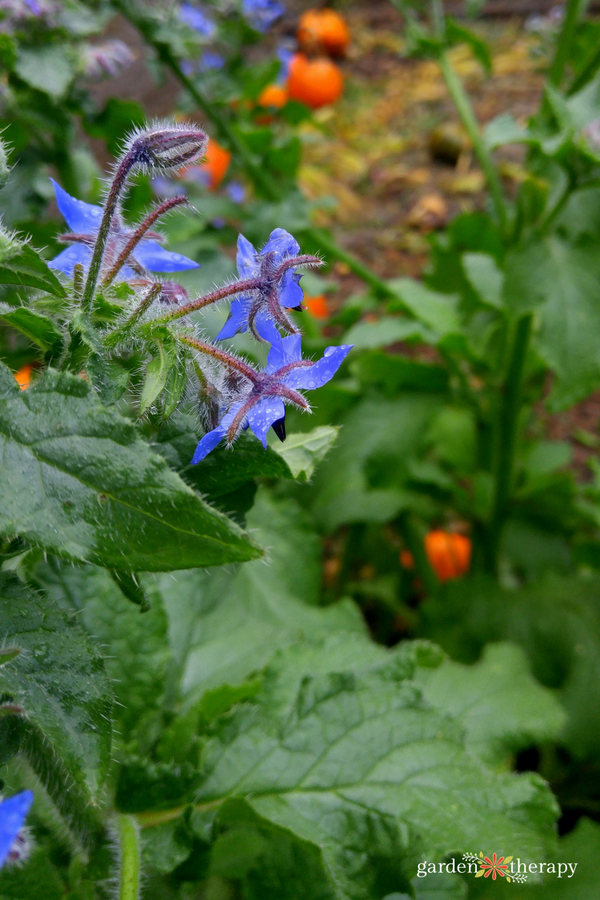
Nasturtium
Aphids are attracted to nasturtiums. We know, we know, you thought this was supposed to be about deterring pests, not attracting them, but hear us out. Aphids are so attracted to nasturtiums that they prefer them over your more prized veggies, such as peas or beans. This means they will leave the vegetables alone and simply head to the nasturtiums planted nearby to feast.
Then… all those aphids hanging around in one spot will in turn attract beneficial insects like ladybugs that will eat the aphids and benefit the garden in other ways too. Nasturtiums also deter whiteflies, squash bugs, and potato bugs, so they are a great choice to add to any vegetable patch.
Light Needs: Full sun to partial shade
Water Needs: Moist, well-draining soil
Start From Seed: Sow indoors and transplant or sow directly into the ground after the threat of frost has passed
Companion Benefits: Deters whiteflies and cucumber beetles; trap crop for aphids; attracts predatory insects
Companion Planting: Plant near cucumbers, radishes, melons, Brassicas, squash, and tomatoes
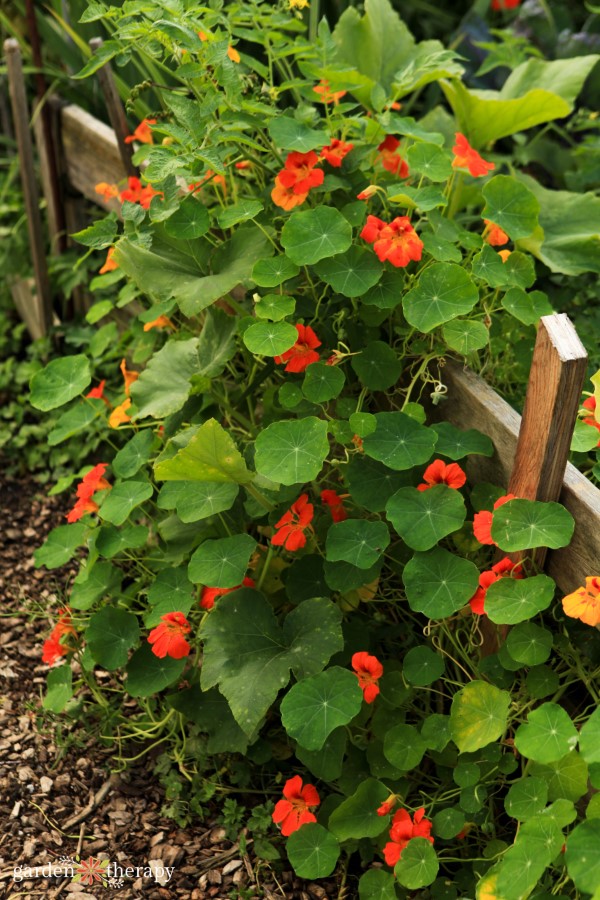
Chrysanthemum
Chrysanthemums contain a natural insecticide called pyrethrum, which means they keep away silverfish, ants, cockroaches, bedbugs, fleas, lice, and even ticks. Talk about a powerhouse pest repellent!
However, pyrethrum will also deter beneficial insects, so you may not want to plant too many around the garden if you are trying to encourage good bugs.
Light Needs: Full sun
Water Needs: Moist, well-draining soil
Start From Seed: Sow directly into the ground after the threat of frost has passed
Companion Benefits: Repel ticks, silverfish, ants, cockroaches, bedbugs, fleas, and lice
Companion Planting: Plant near any plant to you want to deter pests from
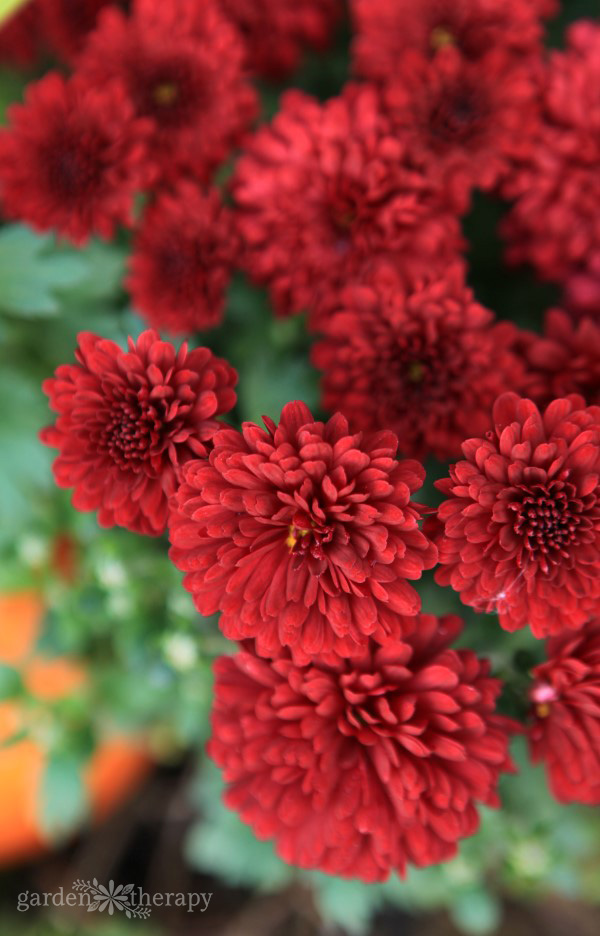
Marigold
Plant some marigolds next to your tomatoes to keep them healthy and happy. Marigolds contain a phytotoxin called alpha-terthienyl which prevents nematodes (AKA roundworms) from munching on the roots of your precious tomato plants.
Marigolds also work wonders planted near Brussels sprouts, cabbage, broccoli, and cauliflower because they will prevent cabbage worms from joining the party.
Light Needs: Full sun
Water Needs: Moist, well-draining soil
Start From Seed: Start indoors or sow directly into the ground after the threat of frost has passed
Companion Benefits: Deters nematodes, whiteflies, Mexican bean beetles, tomato worms, and cabbage worms; attracts slugs away from your vegetables
Companion Planting: Plant near carrots, cucumber, lettuce, peppers, potatoes, tomatoes – most vegetables other than beans.

Petunia
Petunias are gorgeous and come in every colour of the rainbow. As if that weren’t enough, they also protect beans from most pests and work to prevent squash bugs, potato bugs, and are a good general pest deterrent that keeps most bug baddies at bay.
So go ahead, brighten up your vegetable garden and protect it at the same time with petunias in every bed.
Light Needs: Full sun
Water Needs: Moist, well-draining soil
Start From Seed: Start indoors because they are slow to germinate
Companion Benefits: Deters squash bugs, potato bugs, general pest deterrent
Companion Planting: Throughout your garden
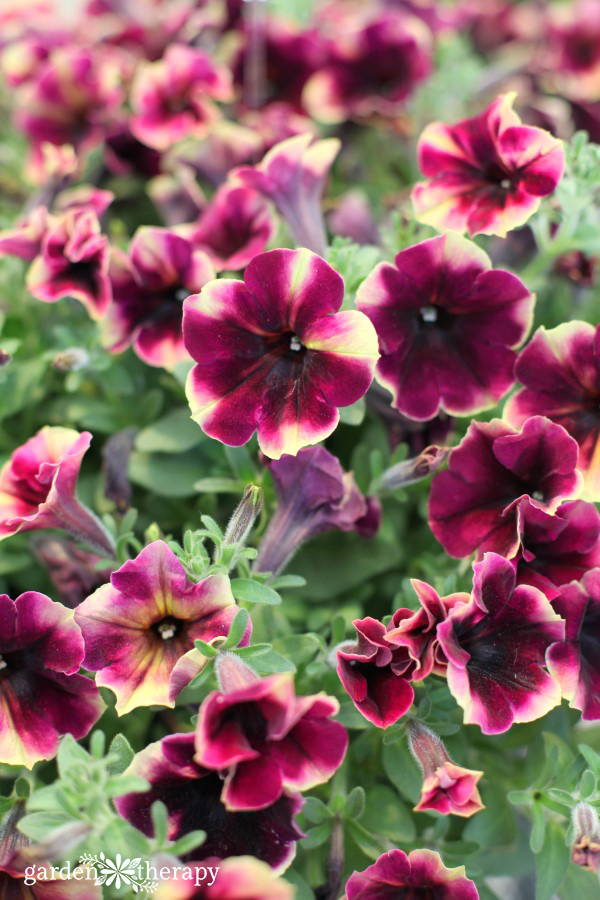
I hope this helps you know which flowers to plant in your garden to take maximum advantage of their superpowers! And while we are talking about natural pest control, take a look at this post on organic ways of getting rid of pests in the garden.
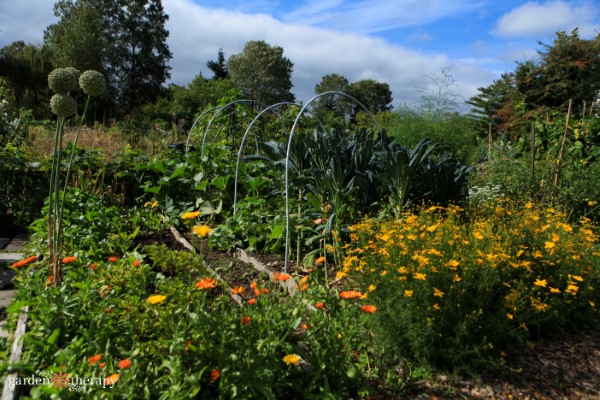
More on Companion Planting:
- Vegetables Love Flowers: Improve Your Vegetable Yield by Planting Beautiful Blooms
- Double Duty Plants: 20 Edible Flowers for Companion Planting in the Vegetable Garden
- Gorgeous Gardens You Can Eat: Award-Winning Foodscape Designs
- Mix Herbs and Vegetables in the Garden to Deter Pests Naturally
- Backyard Wildlife Habitat: 30+ Projects and Ideas

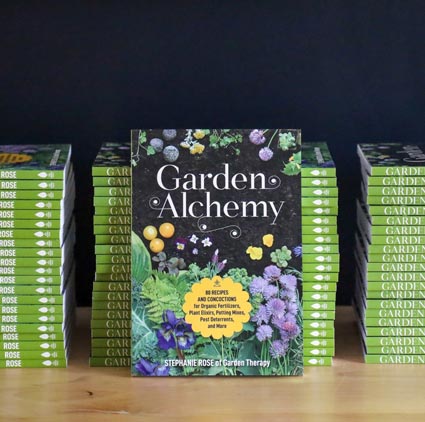


Great website. Lots of helpful hints. How far away can you plant these companions plants and have them still remain effective? Thanks